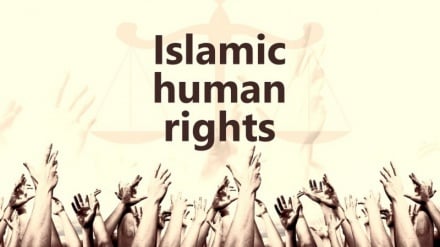Islamic Human Rights (21)
Today, we study the wisdom behind retribution and death penalty in Islamic human rights.
Previously, we spoke of the right of existence and denial of this right. It was also mentioned that up to what extent this human right has been taken into consideration. Holy Quran considers the revival of one human being as the revival of all, and murder of one person as the murder of all. One of the doubts cast, and objections leveled by the opponents of the divine religion of Islam are in relation to the issues of retribution and death penalty in Islamic rulings. Although understanding the reason and philosophy behind rulings is a difficult task, it is possible to find out the general principles behind rulings. Today, we will discuss the philosophy behind death penalty in the sacred religion of Islam.
Islam, as a divine religion, treasures the lives of each and every human being, and in a broader outlook, highly values social existence. One of the pillars of the existence of community is the security of the lives of members of the society. Islam maintains many teachings for inner reformation of mankind. If an individual fulfills Islamic and ethical teachings, the idea of persecuting and ultimately killing others will never cross his mind. Nonetheless, alongside this means for inner control, the divine religion of Islam has considered outside control tools in the form of punitive measures in order to prevent the commitment of crimes. Now, given that the right of existence is one of the most important rights of mankind, naturally a severe punishment should be considered for the murderer. In an Islamic community, all Muslims shoulder the responsibility of protection of the lives, assets, and reputation of members of the society and if a person violates this norm, he should be punished.
Other monotheistic religions and different civilizations throughout the course of history have also considered death penalty. The divine religion of Islam approved of the death penalty to replace blind retaliation. In the Age of Ignorance, if a member of an Arab tribe was killed, the other members of that Arab tribe murdered as many as they could from the killer’s tribe and were even prepared to take the lives of all members of the killer’s tribe.
Upon consideration of the death penalty, the divine religion of Islam prevented blind retaliations, and delegated the responsibility to punish the murderer to the court, and its presiding judge. Meanwhile, retribution is a private right and belongs to the family of the victim. Hence, upon the request of the victim’s family, the presiding judge studies the murder case and enforces the related punitive measures against the murderer. One should bear in mind that death penalty is not compulsory. This means the family of the victim may forgive the murderer and/or only seek blood money from the killer. God Almighty in Holy Quran encourages the family of victim to forgive.
The most important reason behind consideration of death penalty in Holy Quran is maintenance of existence of the community. God in the 179th ayah of Surat al-Baqarah in Holy Quran notes: “There is life for you in retribution, O you who possess intellects! Maybe you will be God wary!”
This ayah points out that there is life in retribution. It should be said that the important thing is the presence of the death penalty; and the implementation of death penalty is not necessarily taken into consideration. This is because in Holy Quran, God also introduces the possibility of forgiveness to victim’s family. The divine religion of Islam has considered the two important principles of forgiveness and kindness in reaction toward crimes and has always prioritized forgiveness over retaliation.
Focus on administration of justice is one of the philosophies behind punishment in Islam. Hence, the divine religion of Islam stands up against criminals in order to counter injustice and to return the community to normal conditions.
Implementation of death penalty roots out bloodshed and the blatancy to commit murder, and also remedies the psychological scars of the community. Throughout all domains, Islam acts based on realism and studies all existing aspects; and never goes to extremes.
Islam considers death penalty as the main punishment for murder so that no one would commit another murder. In the meantime, Islam leaves the victim’s family with the option of forgiveness of the criminal. Islam has also left the possibility for the murderer to repent.
The opponents to death penalty claim that this measure is against the spirit of present-day civilization, which respects mankind’s right of existence.
The fact of the matter is that implementation of death penalty is in line with administration of justice. Kindness toward a callous murderer, who easily kills innocent people, is tantamount to imposition of injustice upon good and law-abiding citizens. If it is possible to prevent a would-be-criminal from commitment of crimes via an outer factor, such as fear of severe punishment; naturally consideration of death penalty can be more effective than any other measure, and can significantly reduce criminal activities.
Death penalty can prevent the murder of innocent individuals by dangerous criminals. In other words, consideration of death penalty is to the benefit of the would-be-murderer, who would refrain from commitment of crimes upon realizing the severity of punishment. Death penalty is also to the benefit of the victim and the victim’s family who would attain peace of mind upon the administration of justice. Death penalty is also conducive for the community, given that it prevents bloodshed in the society.
MR/ME


